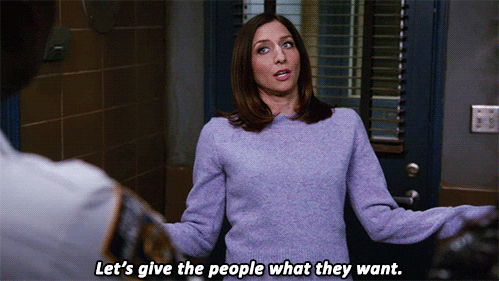People don’t buy products, they buy needs
How understanding the core human needs is critical to build a successful business.
To build a successful business you need to understand what people want and what people need.
And essentially a market exists if there are people that want or need what you are offering.
So, what is a successful business?
The formula is easy.
A successful business needs to:
(i) create something of value,
(ii) that people want or need,
(iii) for a price they are willing to pay,
(iv) in a way that satisfies their needs and expectations,
(v) so that the business brings in enough profit to make it worthwhile for the owners to continue operation.
If one or more of these five elements is missing, then you don’t have a business1.
And if your goal is to build a successful business, it is critical to have an understanding of what people want.
And uncovering what people want is the topic of today’s newsletter.
Maslow’s Hierarchy of Needs
One of the most well-known theories of what people want is Maslow’s hierarchy of needs (1940s).
According to Maslow, human needs are arranged in a hierarchy, with physiological needs at the bottom (e.g. food, sleep, clothing, etc.), and the more creative self-actualization needs at the top (e.g. parenting, reaching goals, creative works, etc.).
Maslow originally suggested that basic needs should be largely met before higher-level ones, but modern research indicates that people frequently seek to fulfill multiple needs at the same time.
However, he later admitted that his earlier statements may have given “the false impression that a need must be satisfied 100% before the next need emerges”.
When a basic need has been “more or less” satisfied, it fades into the background, and our actions naturally shift toward the next unmet set of needs.
In the 1960s and 1970s, Maslow himself expanded his five-stage model to include cognitive and aesthetic needs and transcendence needs.
Cognitive needs: they include the desire for knowledge, curiosity, exploration, and the search for meaning and order.
Aesthetic needs: they include the appreciation and pursuit of beauty, balance, and harmony in life (e.g. art, music, nature).
Transcendence needs: values that go beyond personal growth, seeking a deeper connection with a higher purpose, reality, or the universe.
Deficiency and Growth Needs
Maslow also classified needs into two categories:
Deficiency needs (D-needs): These arise from deprivation (e.g. hunger, insecurity). The longer they go unmet, the stronger the motivation to fulfill them.
Growth needs (B-needs): These focus on personal development and self-improvement, driven by a desire to grow rather than a lack of something.
Businesses and human needs

As I was saying earlier, every successful business is built around these fundamental human needs. For example:
Safety needs: Companies offering home security systems, insurance, or legal services provide protection, support, and peace of mind.

Belonging and esteem needs: Restaurants, dating apps, food & beverage companies, and SPAs improve our need for social connection and self-worth.

Cognitive needs: Universities, publishing houses, and educational apps (e.g. Duolingo) help people expand their knowledge, skills and impact.
If you are curious about how first impressions and advertising make an impact in our everyday life, read the piece I co-wrote with .
Conclusion
At its core, every business sells more than just a product or service. A business sells the promise of status, love, security, knowledge, pleasure, or personal growth.
And the more effectively a business aligns its offerings and communications with these core human desires, the more successful it becomes.
If you’re launching a startup (by the way - are you sure about it?) or a new product, recognizing and tapping into these core needs can make all the difference between making it a success or failing badly.
Here you can read Getting Better’s most popular posts.
See you all on Sundays 🗓️
Thanks,
Giacomo
This definition comes from Josh Kaufman’s The Personal MBA book. A great read.








This is a very helpful framing Giacomo, thanks for it. Have you come across Alex Mather's writing?
Interesting. Maslow’s hierarchy of needs is widely known. Didn't know that he expanded his model. This explains consumer products well. Look forward to an article about enterprise products!